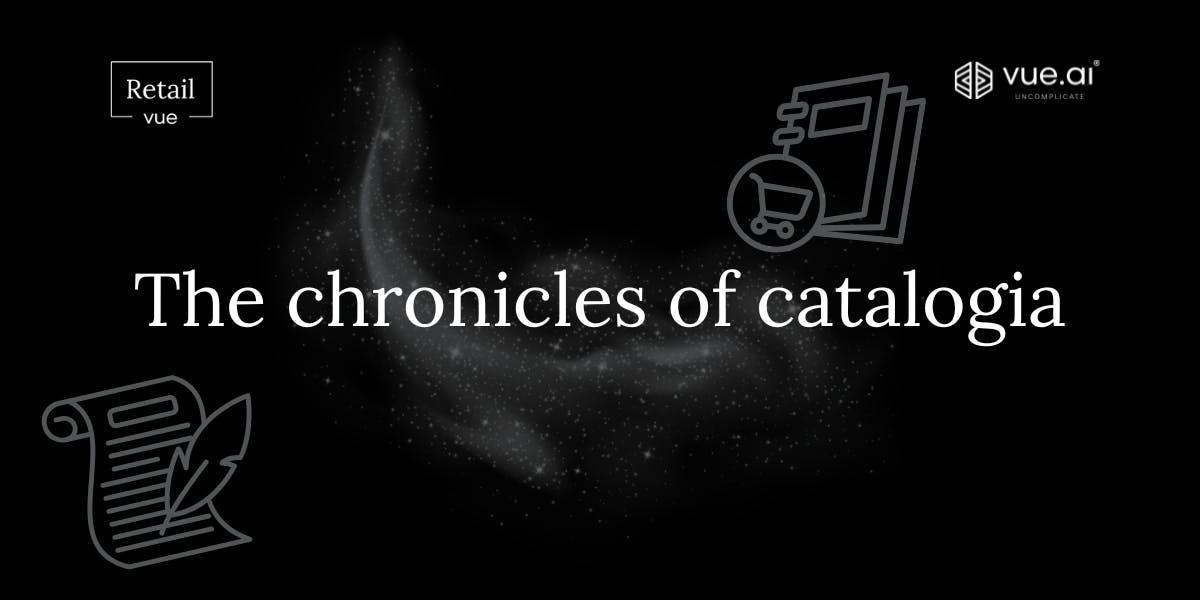Home > Resources > Newsletters > Retail Vue
21st November 2024
PIM Possible
Auto-enriching data to enable intuitive customer experiences? AI in PIM enhances operational efficiency, empowers a faster time-to-market, and establishes a competitive edge in delivering seamless omnichannel experiences.

Consumer behavior is evolving rapidly, driven by generational shifts and growing expectations for seamless omnichannel experiences. Meeting these demands requires operational excellence in managing product information across multiple touchpoints. Product Information Management (PIM) systems that organize, manage and distribute product data across diverse sales channels are the cornerstones in this new milieu. As businesses expand their catalogs, the pressure to maintain consistent, accurate, and engaging product information has intensified. AI enables retailers to meet the challenges of the PIM landscape with unprecedented efficiency, streamlining operations, enhancing customer experiences, and delivering measurable ROI.
The growing need for intelligent product data management
A web of interactions across online marketplaces, social platforms, and physical stores weave the modern shopper’s journey. Since it offers more informative product details than traditional retail, eCommerce operations are witnessing a steady uplift. This shift underscores the necessity for businesses to present enriched, consistent product data at every touchpoint.
PIM systems serve as a single source of truth for product information, consolidating data from various inputs like ERP systems, supplier spreadsheets, and manual entries. However, as product catalogs grow and consumer expectations rise, legacy PIM solutions struggle to keep pace. AI fills this gap, automating repetitive tasks and enabling scalable, high-performance product data management.
AI-driven innovations in PIM
1. Automated Data Enrichment
AI transforms raw, incomplete product data into rich, actionable information. Through technologies like image recognition and natural language processing (NLP), AI can analyze product images and text to generate precise attributes – such as color, sleeve length, neckline etc in fashion, for example. The product tagging feature of the Vue.ai platform uses machine learning to create detailed, standardized tags, ensuring data integrity while reducing manual intervention. This capability is particularly valuable for businesses with visually oriented catalogs, such as fashion and home décor. AI’s ability to extract and classify metadata from images or ingredient lists allows companies to build robust, accurate product taxonomies, enhancing their catalog’s depth and utility.
2. Data cleaning and standardization
Retailers often grapple with inconsistencies in product data sourced from diverse platforms. AI-powered PIM systems address this challenge by automatically cleaning, validating, and standardizing data. This ensures product descriptions, SKUs, and pricing remain consistent across channels, reducing errors that could harm customer trust and sales.
o- - - - - - - - - - - - - - - - - - - - - - - - - - - - - - -o
Read other editions of Retail Vue
Oh, shoot! Fashion’s so much faster with AI (Aug ‘24)
Segment your audience—or your profits (Sep ‘24)
On-model imagery that’s on the money (Oct ‘24)
o- - - - - - - - - - - - - - - - - - - - - - - - - - - - - - -o
3. Enhanced product categorization and classification
By analyzing patterns in product attributes, AI can automatically categorize items within the PIM system. Over time, the AI model refines its accuracy, making it an indispensable tool for scaling businesses managing vast inventories. This reduces manual effort while ensuring products are discoverable through logical classifications.
4. Streamlined syndication across channels
AI simplifies the process of syndicating product data to multiple platforms, such as eCommerce websites, online marketplaces, and print catalogs. By adapting data to each channel’s unique requirements, AI enhances operational agility and ensures a consistent brand message across touchpoints.
Generative AI: The future of PIM
Generative AI takes PIM systems to the next level by automating tasks like data entry, enrichment, and categorization.
- Automated product descriptions: AI-generated copy ensures uniformity in tone and branding, besides saving time.
- Predictive tagging: Using historical data, Generative AI predicts attributes for new SKUs, speeding up the time-to-market.
- Improved product discovery: Shoppers benefit from more intuitive search functionalities powered by AI-analyzed features and contextual recommendations.
Additionally, Generative AI enhances operational workflows, such as moderating product images to meet marketplace standards or enabling visual search for end users. These capabilities help retailers improve catalog accuracy, reduce returns, and elevate the customer experience.
Takeaways
To harness AI’s potential in PIM systems, practitioners should…
- Evaluate existing infrastructure: Audit current product information processes to identify gaps in data accuracy, consistency, and scalability. Prioritize integration with existing ERP or MDM systems.
- Invest in AI-powered solutions: Adopt a cloud-based, AI-enhanced PIM system that supports automated tagging, data enrichment, and real-time updates. Comprehensive platforms like Vue.ai demonstrate the value of intelligent tools tailored to omnichannel retail.
- Focus on scalability and customization: Ensure that the chosen PIM solution accommodates future growth, supports multi-lingual data, and integrates seamlessly with eCommerce platforms and marketing tools.
- Empower teams with AI-driven insights: Equip merchandising, marketing, and operations teams with enriched, actionable data to make informed decisions.
- Track ROI and efficiency gains: Monitor metrics such as time-to-market, product data accuracy, and customer satisfaction to evaluate the PIM system’s impact on business goals.
And, so...
As businesses navigate an increasingly complex retail environment, AI-enabled PIM systems emerge as a critical tool for driving efficiency and differentiation. From automating data enrichment to enabling intuitive customer experiences, AI transforms product information management into a strategic asset. Business leaders who prioritize investments in AI-powered PIM solutions stand to reap significant rewards: enhanced operational efficiency, faster time-to-market, and a competitive edge in delivering seamless omnichannel experiences. In the race to meet evolving consumer expectations, embracing AI in PIM systems is a prudent pick.
About: Transcending conventional tagging, Vue.ai effortlessly enriches product media assets by providing accurate and contextually relevant metadata, extracted from both structured and unstructured visual and text inputs, in a partnership with OpenText. Vue.ai is an AI orchestration platform that actively caters to enterprises in retail, BFSI, logistics, healthcare and other domains. The patented (USA, 2019) on-model AI imagery feature of the platform would particularly interest fashion and apparel enterprises.
o- - - - - - - - - - - - - - - - - - - - - - - - - - - - - - -o
Also read The AI Vue
Agents are here → AI’s shaken and stirred (Sep '24)
Lifting the lid on LLMs (Aug '24)
See through Computer Vision (Sep '23)
o- - - - - - - - - - - - - - - - - - - - - - - - - - - - - - -o





